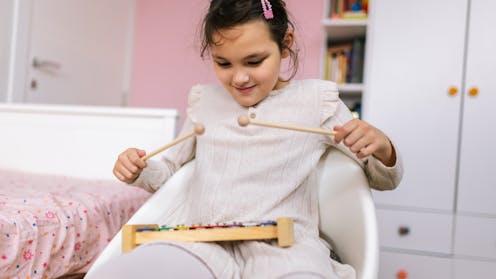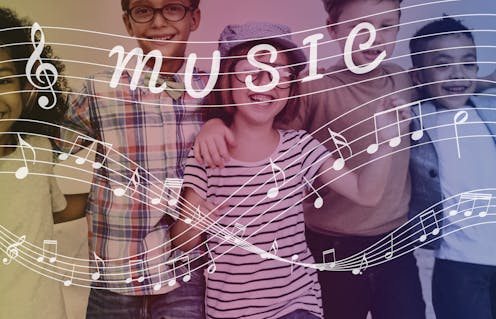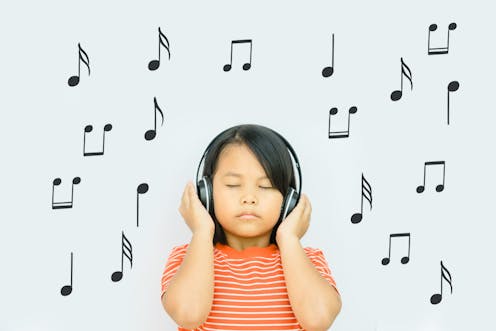Music therapy is a powerful and effective form of therapy that utilizes the healing properties of music to address various physical, emotional, cognitive, and social needs. It is a well-established and evidence-based practice that has been used for centuries to promote health and well-being. Music therapy can be tailored to meet the specific needs of individuals, including children, and can be used in a variety of settings, including hospitals, schools, and community centers. The use of music as a therapeutic tool can have a profound impact on children, helping them to develop emotionally, cognitively, and socially. Music therapy is a versatile and non-invasive form of therapy that can be used to address a wide range of issues, making it an invaluable resource for children and their families.
How Music Therapy Supports Emotional Development in Children
Music therapy has been shown to be highly effective in supporting emotional development in children. Music has the power to evoke emotions and memories, and can be used to help children express and process their feelings in a safe and supportive environment. Through music therapy, children can learn to identify and regulate their emotions, develop coping skills, and build self-esteem. Music can also be used to create a sense of comfort and security, helping children to feel safe and supported as they navigate their emotional experiences. By using music as a tool for emotional expression and exploration, music therapists can help children develop a deeper understanding of their emotions and build the skills they need to navigate the complexities of their emotional world.
The Role of Music Therapy in Cognitive and Physical Development
In addition to supporting emotional development, music therapy also plays a crucial role in promoting cognitive and physical development in children. Music has the power to stimulate the brain and can be used to enhance cognitive skills such as attention, memory, and problem-solving. Through activities such as singing, playing instruments, and rhythmic movement, children can improve their motor skills, coordination, and physical strength. Music therapy can also be used to support children with developmental delays or disabilities, helping them to reach their full potential and achieve their developmental milestones. By engaging in musical activities, children can improve their cognitive and physical abilities in a fun and engaging way, setting the stage for future success in school and in life.
Music Therapy as a Tool for Communication and Social Skills
Music therapy is a valuable tool for promoting communication and social skills in children. Music has the power to bring people together and can be used to facilitate social interactions and connections. Through activities such as group singing, playing in a band, or engaging in musical games, children can learn to communicate effectively, collaborate with others, and build meaningful relationships. Music therapy can also be used to support children with communication challenges, helping them to find alternative ways to express themselves and connect with others. By using music as a tool for communication and socialization, music therapists can help children develop the skills they need to thrive in their relationships and interactions with others.
Addressing Behavioral Challenges Through Music Therapy
Music therapy can be a highly effective tool for addressing behavioral challenges in children. Music has the power to regulate emotions and can be used to help children manage their behavior in a positive and constructive way. Through activities such as listening to calming music, engaging in rhythmic activities, or creating music, children can learn to self-regulate and develop positive coping strategies. Music therapy can also be used to address specific behavioral issues, such as aggression, impulsivity, or anxiety, helping children to develop the skills they need to manage their behavior and make positive choices. By using music as a tool for behavior management, music therapists can help children develop the skills they need to thrive in their relationships and interactions with others.
The Impact of Music Therapy on Children with Special Needs
Music therapy has a profound impact on children with special needs, providing them with a unique and effective form of therapy that can address their specific needs. Music has the power to reach children on a deep level, regardless of their abilities or challenges, and can be used to support their development in a holistic way. Through music therapy, children with special needs can improve their communication, social, emotional, cognitive, and physical skills, helping them to reach their full potential and achieve their goals. Music therapy can also provide children with special needs with a sense of joy, creativity, and self-expression, helping them to experience the transformative power of music in their lives.
Music Therapy in Healthcare Settings for Children
Music therapy is an invaluable resource in healthcare settings for children, providing them with a supportive and healing environment in which to address their physical, emotional, and social needs. Music therapy can be used in hospitals, clinics, and other healthcare settings to help children cope with the challenges of illness, injury, or medical procedures. Through activities such as listening to music, creating music, or engaging in musical play, children can find comfort, distraction, and relief from their symptoms. Music therapy can also be used to support children and their families as they navigate the complexities of their healthcare experiences, providing them with a sense of hope, empowerment, and resilience. By using music as a tool for healing and support, music therapists can help children and their families find strength and comfort in the face of adversity.
The Importance of Parental Involvement in Music Therapy
Parental involvement is crucial in music therapy for children, as it can help to enhance the effectiveness of the therapy and support the child’s overall development. Parents play a key role in the success of music therapy, as they can provide valuable insights into their child’s needs, preferences, and challenges. By actively participating in music therapy sessions, parents can learn how to use music as a tool for supporting their child’s development and well-being at home. They can also gain a deeper understanding of their child’s strengths and needs, and learn how to use music to connect with and support their child in a meaningful way. By involving parents in the music therapy process, music therapists can help to create a supportive and collaborative environment in which children can thrive and reach their full potential.
Exploring Different Approaches and Techniques in Music Therapy
Music therapy encompasses a wide range of approaches and techniques that can be tailored to meet the specific needs of children. Music therapists use a variety of methods, including listening to music, creating music, playing instruments, singing, and engaging in rhythmic activities, to address the unique needs of each child. They also use a person-centered approach, taking into account the child’s preferences, abilities, and challenges, to create a customized and effective therapy plan. Music therapists may also collaborate with other healthcare professionals, educators, and caregivers to ensure that the child’s needs are met in a holistic way. By exploring different approaches and techniques in music therapy, music therapists can provide children with a diverse and engaging therapeutic experience that can support their overall development and well-being.
The Future of Music Therapy: Research and Advancements for Children’s Well-being
The future of music therapy for children is bright, with ongoing research and advancements that are continually expanding the scope and effectiveness of the therapy. Researchers are exploring the impact of music therapy on children’s well-being, and are finding new ways to use music as a tool for promoting health and development. Advancements in technology are also making music therapy more accessible and engaging for children, with the development of interactive music-based apps, virtual reality experiences, and other innovative tools. As the field of music therapy continues to evolve, it holds great promise for the future, providing children with a powerful and effective form of therapy that can support their overall well-being and development. With ongoing research and advancements, music therapy is poised to continue making a positive impact on the lives of children for years to come.
Find out how Torongo Therapyplus can help you with your needs. Get in touch with us at smile@torongo.life, or call us on 02 8809 9965.































